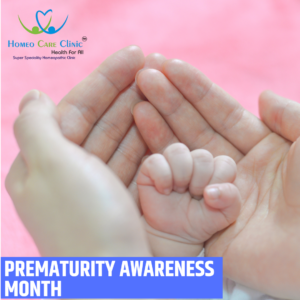Raising Prematurity Awareness November – The Month of Hope
The Significance of Prematurity Awareness Month
Prematurity Awareness Month, observed throughout November, is an annual event designed to educate the public about the impact of premature birth and to raise awareness about the critical need for research and support.
Epidemiology of Premature Birth
Understanding the epidemiology of premature birth is crucial in addressing this issue. Premature birth occurs when a baby is born before 37 weeks of gestation. According to the World Health Organization (WHO), approximately 15 million babies worldwide are born prematurely each year. Preterm birth rates vary from region to region, with some countries experiencing higher rates due to social, economic, and healthcare factors.
Causes and Risk Factors
1. Premature birth can result from a complex interplay of genetic, environmental, and lifestyle factors. Some common risk factors include:
2. Maternal age (being too young or too old)
3. Multiple pregnancies (e.g., twins or triplets)
4. Infections and chronic conditions in the mother
5. Smoking, drug use, or alcohol consumption during pregnancy
6. Inadequate prenatal care
7. Stress and socioeconomic disparities
Preventive Measures
Preventing premature birth involves both medical and lifestyle strategies. Prenatal care, which includes regular check-ups and monitoring, is essential. Lifestyle factors such as a healthy diet, avoiding smoking and alcohol, managing stress, and addressing chronic conditions can help reduce the risk. For women with a history of preterm birth, interventions may be recommended by healthcare professionals.
Homeopathic Management
Homeopathy, a holistic approach to healthcare, offers potential support for pregnant women experiencing various conditions related to pregnancy, including the risk of preterm birth.
Here are five homeopathic medicines that may be considered:
- Caulophyllum Thalictroides: Used for cervical weakness and threatened preterm labor.
- Sepia: Indicated for pregnant women with a history of recurrent miscarriages or preterm birth.
- Pulsatilla: Helpful for emotional disturbances and hormonal imbalances during pregnancy.
- Gelsemium: Suitable for anxiety, restlessness, and insomnia during pregnancy.
- Ignatia Amara: Recommended for women who experience emotional stress, grief, or trauma during pregnancy.
Conclusion
Prematurity Awareness Month, celebrated in November, shines a spotlight on premature birth, a global concern affecting millions of babies each year. Understanding the epidemiology, causes, symptoms, and preventive measures for premature birth is essential. Homeopathic management, through the use of carefully selected remedies, can be a complementary approach to support pregnant women. By raising awareness, promoting research, and providing support, we can improve outcomes for premature babies and their families.






